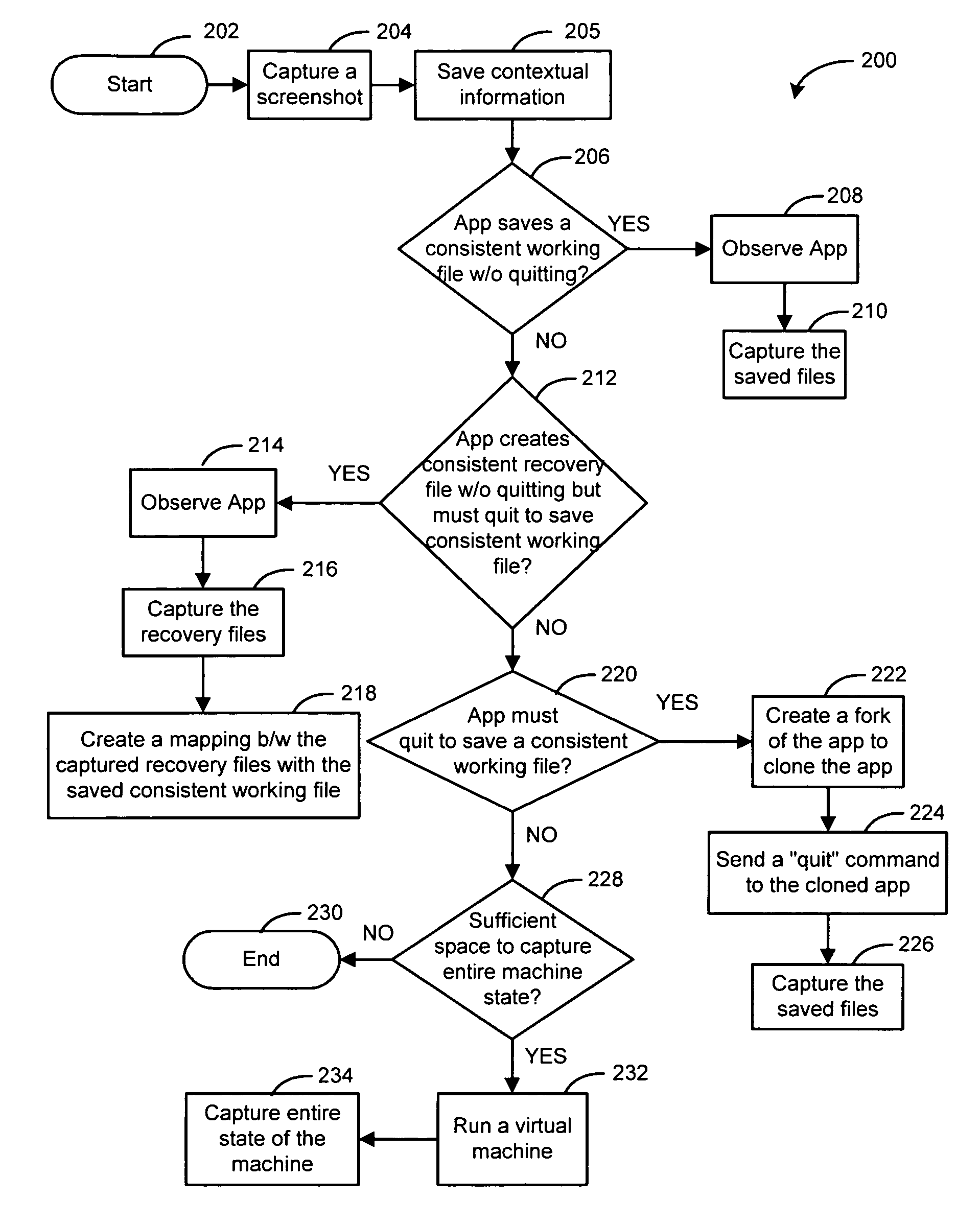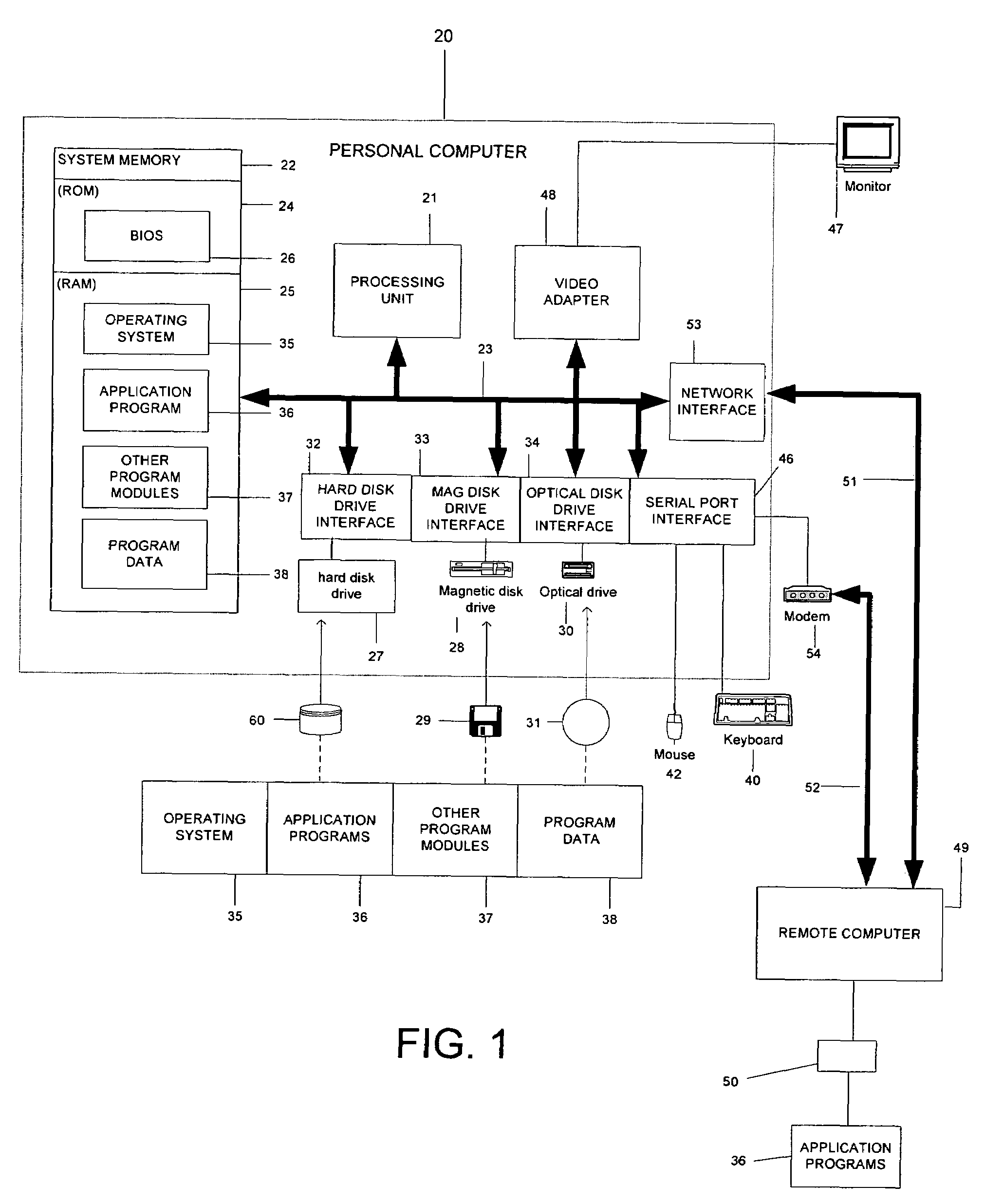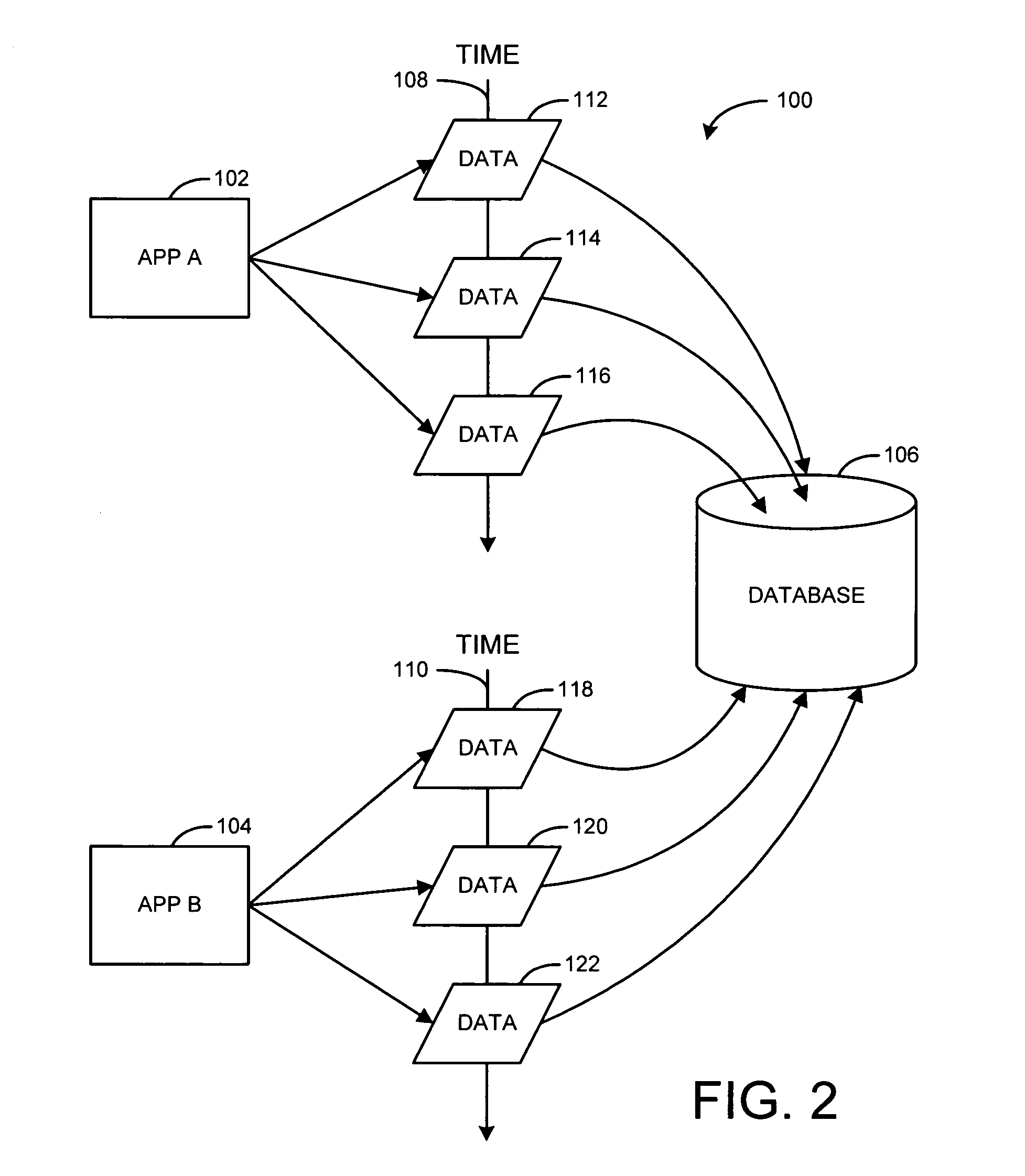Method, medium and system for recovering data using a timeline-based computing environment
a timeline-based computing and data recovery technology, applied in the field of data recovery in a computing environment, can solve the problems of information being easily lost, the fragility of computers and software applications has not been properly addressed, and users tend to find it difficult to manage such a large amount of data, etc., to achieve simple and intuitive graphical representation, user-friendly, effective and manageable
- Summary
- Abstract
- Description
- Claims
- Application Information
AI Technical Summary
Benefits of technology
Problems solved by technology
Method used
Image
Examples
Embodiment Construction
[0017]The present description discloses a technique for recovering an application using a timeline-based approach. Specifically, data items of an application are periodically saved for recovery such that the saved data items can be used to recover the application with its working files at a time when the items were saved. As a result, a search through a time-based archive is provided to recover the application at different points in time. Accordingly, the application along with its files can be recovered at a designated point in time using the saved information. Thus, in using a timeline-based approach, an improved method and system of recovering data that is more user friendly, effective, and manageable has been provided.
[0018]The invention can operate in a computing environment. In an embodiment of the invention, the described process operates on a collection of one or more computing devices. A suitable computing device usable in implementing all or some aspects of the invention w...
PUM
 Login to View More
Login to View More Abstract
Description
Claims
Application Information
 Login to View More
Login to View More - R&D
- Intellectual Property
- Life Sciences
- Materials
- Tech Scout
- Unparalleled Data Quality
- Higher Quality Content
- 60% Fewer Hallucinations
Browse by: Latest US Patents, China's latest patents, Technical Efficacy Thesaurus, Application Domain, Technology Topic, Popular Technical Reports.
© 2025 PatSnap. All rights reserved.Legal|Privacy policy|Modern Slavery Act Transparency Statement|Sitemap|About US| Contact US: help@patsnap.com



